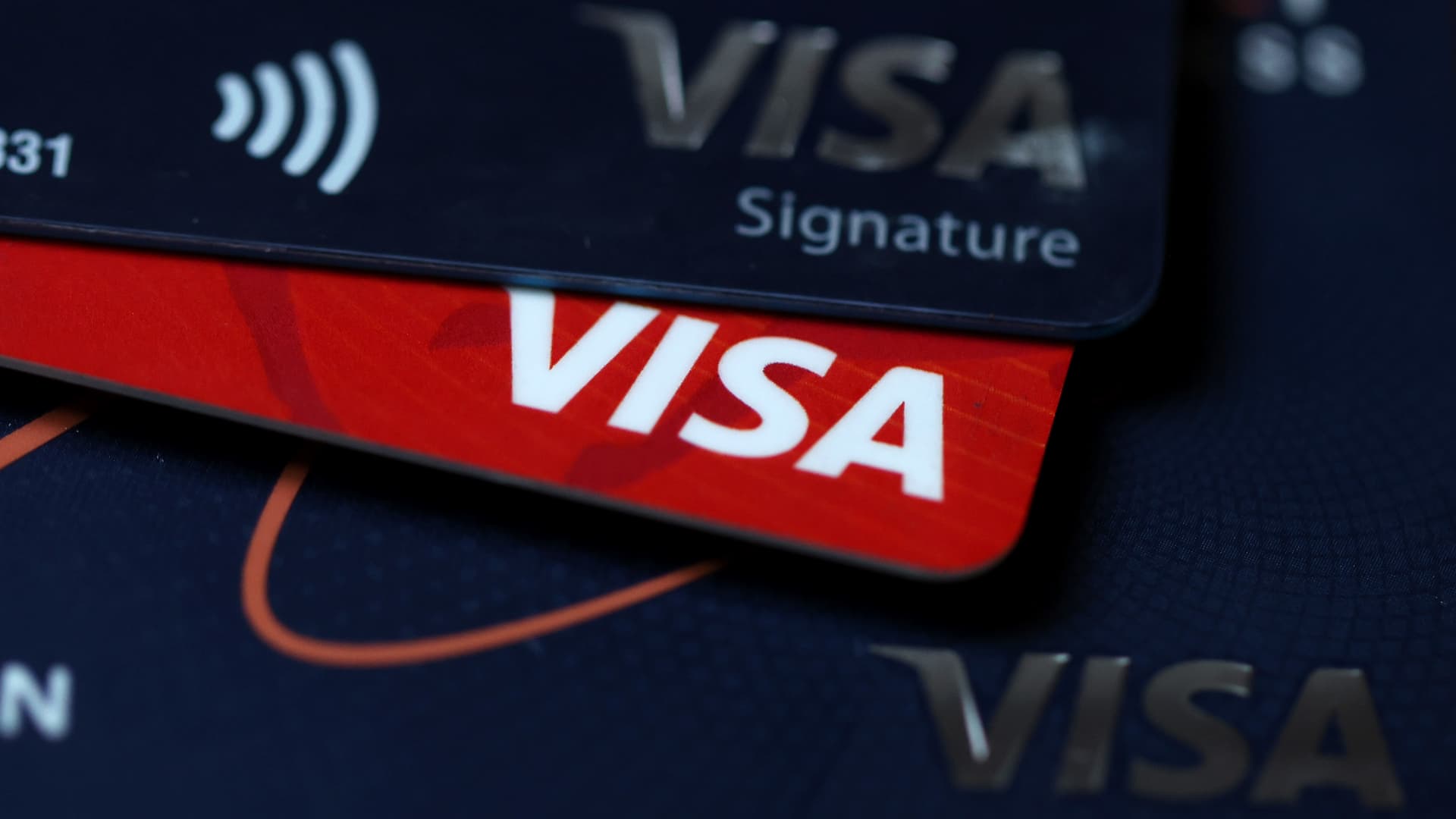Visa should be nationalized. Let the government run the payment processing if we are only going to have only one.
Check out FedNow. Basically a domestic government run payment system. Still pretty new and growing.
Christ…this needed to be major news a year ago. We really need to get banks out of the payment business but fear that they are pulling an Intuit and will make the FedNow system more challenging to use down the road.
FedNow still relies on banks. The only way we can truly get the commerical banks and financial institutions out of the picture is with cryptocurrency (lol) or a CBDC (central bank digital currency). In short, a CBDC would operate like a Government-run Cash App or PayPal and the balance in a CBDC wallet holds the same status as paper money and is legal tender.
I believe that CBDCs are entirely necessary for a digital future. For the everyday citizen, the only form of “cash”, as in “Government-issued legal money”, is paper banknotes and pieces of coinage. This is wholly insufficient for a system where an increasing amount of business is conducted digitally, and all it does is invite middlemen like Visa to insert themselves like a leech and take profit off every transaction. Banks and financial institutions already have digital cash; account balances at the Federal Reserve are as good as cash to banks as far as the law is concerned, but the everyday layman can’t just go into the Federal Reserve and ask to open an account.
This is exactly that CBDCs will solve. Anyone can hold real money (not just a promise to pay money) in a digital format and exchange it peer-to-peer or use it to conduct business free of fees and middlemen.
The only problem is that conservatives in America think that they can’t trust the Government, so it’s better to trust for-profit financial institutions instead. After all, the banks have never fucked it up before, right?
I’m
Ah fuck! Did VISA get you?
I’d love to see the federal reserve issue a no fee stablecoin, though I wonder if it would be secure in the long term with quantum coming.
Why would the government put time into making fake money when they can just make more real money?
Because electronic payments that do not require a middleman are inherently better than funneling everything through centralized organizations like Visa. They could make their own dollar based blockchain that has secure and private transactions based on their own stablecoin. It would be the same as a cash payment.
Again, why would the government waste real money doing that with fake money, when they can do it with real money instead? What benefit is there, over just being a regular processor for real money? Because it’s definitely not the inability to reverse transactions in blockchain systems, that’s more of a feature for criminals.
I have a very strong feeling that @[email protected] is being downvoted here, not because they make a bad point, but because they phrased it in terms of cryptocurrency which immediately triggers negative reactions from everyone.
What OP has proposed is neither novel, nor a terrible idea. In fact, economists call it a central bank digital currency. And yes, some countries have adopted it. It’s usually not run with a blockchain, but that’s because if you have a trusted central entity to run the system, that being the central bank, a blockchain is inferior in practically every aspect to a normal relational database. That’s why all current CBDCs still use fairly traditional accounting systems.
Your use, however, of the terms “real money” and “fake money” has, I believe, the effect of shutting down intelligent conversation, rather than encouraging it. “Money” is a social construct. “Real money” is whatever the Government declares to be “real” and that the population is willing to use. It doesn’t need to be physical money. And it is unquestionable that in the countries that have adopted the legal framework that allows their central banks to issue CBDCs, the money so issued this way is as real and legally equivalent to paper banknotes and metal coins.
I struggle with the idea that “real money”, even as crypto, needs to be centralized and easily tracked. It’s not just about crime, it’s about privacy. The federal reserve doesn’t need to know the movements of every single individual. If I lend you $10, and you don’t pay me back, it’s both embarrassing for me and embarrassing for you, but we’re good friends and this is just between us. Maybe you could provide that sort of anonymity on a relational database, but it doesn’t have to be centralized. The blockchain tech gets faster and faster and not everyone has to be a full node, they could just run it at banks, maybe even with a bridge to other systems.
Anyway, I understand where people are coming from, blockchain was ruined by cryptobros and scammers. It’s not an inherently evil idea, it may be inadequate in speed as compared to Visa, but the idea that I could take the middleman out of any business while still having common listings, and make it a conversation between a supplier and consumer is fundamentally good. We do not need Sabre or Expedia taking 15% of every hotel or airline booking. We do need Uber’s secret pricing on rideshares. Very little value is added by middlemen in those transactions, where, in the end, the reputation of the provider is paramount- and yes, things can be set up so that provider can be vetted by third parties. The promise of blockchain is not NFTs, it’s freedom to do business in a different way, and some of the limiting factors holding it back are the lack of clear regulations for the industry, and a trusted stablecoin network.
There are a few types of “anonymity”.
The highest level of anonymity is perfect anonymity, where it is literally impossible to prove a transaction occurred or know anything about that transaction without being a party to that transaction. Some private cryptocurrencies are truly perfectly anonymous because it’s cryptographically infeasible to determine who paid whom and how much was paid without being a party to that transaction. Metal coins are generally perfectly anonymous. Paper money is nearly perfectly anonymous. They still have serial numbers that can be traced. It is easy to make arguments that perfect anonymity is undesirable because the drawbacks of allowing criminals, terrorist organisations, or sanctioned states to transact freely and in complete secrecy outweigh the privacy benefits to normal people compared to what they enjoy with lower levels of anonymity. I am not here to make an argument about this.
The next-highest level is what I will call “legal anonymity”, where knowledge of transaction details is tightly restricted by law. If you think of Swiss bank secrecy laws, this is close to what I mean. A CBDC can operate at this level of anonymity. The central bank would still theoretically know all details of all transactions, but the use of this information would be legally restricted and cannot be used for mass surveillance. However, the information is still retrievable by means of some defined legal process, such as a court subpoena or specific search warrant.
The level below that is what I will call “discretionary anonymity”. This is where a third party knows all the transaction details, and the restrictions on what they can do with this information are either weak or non-existent. Hence, your privacy is at the discretion of whoever holds this information. This form of privacy is weak compared to the other forms but a large portion of the population still finds this level of anonymity to be acceptable for everyday transactions. Bank transactions in the USA are discretionarily private. The bank can use and exploit the transaction data it knows with relatively few legal restrictions.
The final level is pseudo-anonymity, where transaction data is publicly accessible, but some information (such as the exact names of the payor and payee) is not provided. Bitcoin and most other cryptocurrencies are pseudo-anonymous.
Why, for tracking of course!
Actually, that is a decent point in this idea’s favor. Don’t think that’ll overcome the downsides, but I’ll give you a point for that one all the same.
if the government was to do their own crypto it could do a lot to disrupt the current unregulated “stablecoins” that currently exist, i could see it happing if for no other reason than to fight money laundering. If the fed is doing it, it becomes “real” money and most people would probably prefer a fed coin to something like usdt.
It would be real money if the federal reserve issued it. Cash still exists, is that a feature for criminals or does it benefit the poor and unbanked?
It would be real money if the federal reserve issued it.
No, as you said, its a stable coin backed by real money.
Cash still exists, is that a feature for criminals or does it benefit the poor and unbanked?
Cash transactions can easily be reversed, unlike blockchain, but nice bait.
I have the most incredible news for you about this crazy new thing called… cash.
More seriously, there’s no reason government bodies shouldn’t just create a central digital transaction system with real money, instead of pouring resources into the stupidity of a blockchain system. Save everyone a lot of trouble and wasted compute cycles and just make the source of trust in the system the fact that it’s administrated by a trusted central authority running a database, instead of the various shell game wank of blockchain systems.
The whole reason the shell game wank is an attractive prospect in the first place is a question of who watches the watchmen. If your trusted central authority gets compromised, will you know? And if you know, will you be able to do anything about it?
I don’t exactly think that cryptocoin is the best solution in this regard, but I can at least respect the attitude behind how it came to be.
The counterpoint being that a centralized organization introduces checks, balances, and recovery methods for some losses. If your credit card gets stolen and charged or your bank suddenly becomes insolvent, you have a significant chance that your money will be able to be recovered. Compare that to cryptocurrency, where your wallet information being compromised or a crypto exchange you have assets in going under leaves you at a complete loss and entirely devoid of recourse. Centralized systems have many issues, obviously, as Visa seems to be on an endless crusade to make everyone supremely aware of, but at the same time cryptocurrency being an alternative doesn’t make it a valuable or viable alternative.
These network transactions cost between 2 to 4 % for merchants, which is a cost passed to consumers by businesses raising prices. That’s a fairly large “inflation”, and certainly it seems out of line with the effort they out into it. It’s anticompetitive practices that keep it in place.
Fwiw debit card transaction are capped around 21 cents per transaction depending on the size of the bank holding the account. You’re right for credit cards though. Also, imho, I’ve never seen merchants pass along these debit card savings to the consumer. With they would though.
Whether they directly pass the costs or indirectly, these are still costs made by the seller. In other words either the costs are passed on by the credit card customers or simply all customers. Somebody has to pay for the costs and in the end the seller has to make some profit to survive.
Those truck stops that have the X gas price for cash Y gas price for credit (x < y) are a good example of a merchant passing the savings onto consumers. More niche is all the coin shops I’ve been to pass the fee onto you if you use a card.
Our transactions cost 3 dollars per 100 spent
Yeah, you can think of it as a simple transaction fee for debit transactions, and a full blown credit and risk shifting system for credit transactions. The banks charge high fees for credit transactions because they’re actually lending money and bearing some credit risk for them, whereas the debit transactions are just moving money from one account to another.
Banks charge higher fees for credit transactions to fuel the loyalty programs (flyer miles, cash back, etc) on those cards. This is why you no longer get any loyalty benefits on debit cards but you still do on credit. The fees don’t cover the risk on credit cards , the interest does.
And the merchant terms are getting worse and more arbitrary.
Removed by mod
I wonder what the world would be like if that IBM source code which is the backbone for all financial transactions and payment gateways weren’t tightly controlled proprietary tech.
More fraud maybe, but less nickel and dime trickle upwards.
Obligatory fuck IBM they are largely patent trolls at this point adding zero value to anything.
Let’s not be too hard on them. They have a rich history of working all over the world in a variety of roles.
After all, what other company can you name that helped operate Japanese internment camps in America and Nazi Concentration camps at the same time?
The only thing of value at IBM now is Redhat. And there are a lot of people who aren’t happy with some of the decisions they made with Redhat.
To be fair they seem to innovate a lot, Waston for example. I think it’s just that they can’t seem to market it properly.
What are you referencing specifically? I work in payments and I’ve never heard of this IBM code. The card networks just use an ISO format and every front end is different (the two we have are completely different in very fundamental ways though they are definitely both old as fuck).
If you could set me up with some texts or resources on programming a cashier till, or maybe even a bank, and a complete payment gateway that will be able to process debit transactions, which does not require an IBM package, then I would be eternally grateful. Like really beyond grateful.
When trying to research this online or asking people who work in the field everyone seems to say you buy the framework from IBM and build on top of it. Everywhere. All roads lead to Rome.
I think part of the popularity of Blockchain is that its pretty much the only alternative system of sending monetary value.
It’s not that you can’t. It’s that it’s an extremely high risk venture, IBM’s code is proven, it would cost way more to make the code yourself, and you’re going to need like a decade to prove it works well before you get enough trust in it to work with business to business stuff.
So everyone buys the proven code to avoid the headaches.
Right, yes, I want to do that. I want to create a high risk extremely unstable custom built payment gateway. Please send any reference text info on how to scan a credit card and format that data to make a nearly instantaneous withdrawal of funds from one bank to another and if there is an error then how to read those error codes like amount unauthorized or insufficient funds, etc.
I want to do it. I want to host it all on my own machines. AFAIK it isn’t possible, that the internal know how used by banks and businesses is all handled by IBM.
Your sticking point is reading the actual code from the chip or magnetic stripe. Once you have that information you can do whatever you want with it in code. For sending and requesting payments it’s just API tie ins with the banks.
Card Scanners are not Payment Gateways. I don’t want to set up a use case for every Bank’s API, I want to make a standardized payment gateway without my end using IBM. I want homemade BaaS
So you’re talking an online payment portal?
What isn’t a monopoly anymore? Which doesn’t make their ultimate goal is to fuck people to make a profit. Latest one that hit me hard is
catcar manufacturers selling people’s data to the insurance companies and people are getting insurance pricebikehike(fuck you, Google and fuck your fucking keyboard) for no reason.deleted by creator
Well after living through 2008, I am convinced the DoJ will magically forget about thise whole thing in a few years lol.

deleted by creator
The only things I see that have a visa logo on it, are those prepaid cards. Out of all the cards I’ve ever had, bank or credit, I’m pretty sure only 1 has ever been visa, and that was like 15+ years ago, everything else is, or has been MasterCard.
Yessss












